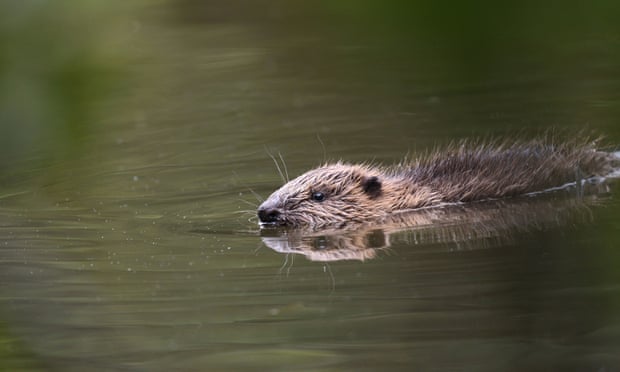many parts of southern England and Wales facing dry conditions and prepare for emergency measures for water supply, but the country receives more more annual rainfall than anywhere else in Continental Europe.
long periods of drizzle britain is famous for so we take water for granted in a way a little hot countries no need. But as the climate gets hotter and we get drier, this becomes impossible. So how we have come to this point and what can politicians, companies and individuals do to mitigate against drought?
stop leaks
Before we tell you not run faucet while you brush your teeth and start having a two minute shower, it’s important to note that water companies allow amazing amount of water leak through their creaky, old infrastructure. Recent Times analysis found water companies are wasting up to quarter of their offer in leaks. Activists argue that after privatization, much of money went to shareholders of water companies instead of in infrastructure improvement. What more, problem gone on so long, leaks have become ever more expensive as well as complicated to fix.
Industry says he’s trying to make a change. Stuart Colville, director of policy in trade body Water UK, said: “[Water] companies are committed halving leakage by 2050 – building on recent data showing some of lowest levels of leak ever – and on supporting customers to do their bit.”
Stop personal losses
Having said this, the British do use a lot of of water. The average citizen uses significantly more than most Europeans – usually about 150 liters per day per person compared to with 128 in France, 130 in Spain and 122 in Poland. Only three countries use more per capita: Greece, Bulgaria and Italy top the table more more than 200 liters per day.
Mark Lloyd, CEO of Rivers Trust is campaigning to convince people stop using high-quality tap water for work like washing cars and watering gardens. Instead, he says people should get barrels of water, and government should run public information campaign to reduce Application.
He says: “We have a stubbornly high per capita consumption. rate which the one of in highest rates in Europe and it won’t come down. government It has set goals to bring it down and they didn’t state how they will still do it. We need fundamental change in behavior and new at home should to be built be water-saving as well as energy-efficient.”
Ofwat, the water regulator, offers people use washing-up bowls instead of constantly open the tap, waiting for full load before washing and watering plants with Wastewater.
Release the beavers
Part of in problem in Great Britain – we have historically drained our rather damp lands to improve prospects for economy and infrastructure. We have also leveled our rivers and stopped flooding them around – removing wetlands – which is not only terrible for nature but quickly carries the water downstream, causing floods when there is much rain and droughts when there is none.

A fluffy rodent could give an answer; beavers build dams, creating wetlands and slow currents of rivers that store water in landscape. There are some trials of closed releases in England and also some roaming beavers in Scotland and some parts of southern England. activists want in government to allow releases of enterprising animals across the country.
representative for The Beaver Trust explains: “We encourage government prioritize water security and accelerate recovery of beavers in river catchments as part of of low-cost restorative, solution-based approach to mitigation against devastating consequences of drought and forest fires.
Well, that’s what they would say. But one farmer Chris Jones found what are beavers on his land in Cornwall protected him from the worst consequences of recent drought.
He says us: “What the beavers have done is that they built whole series of dams and all store water. They are help save area of The land adjacent to the stream is wet and drought tolerant.
“The beavers have reconnected the stream with flood plain, so you have all these little streams crossing the land where there was no water before. Now the ponds building up behind dams, building up water reserves in Earth.”
Farm more reasonable
British agriculture is accustomed to using water in an unsustainable way of drawing water from rare chalk streams for irrigation of crops and the cultivation of many water-intensive crops. in the driest parts of country – for for example, the potato, which is a very greedy plant, in East England.
Farmers can be encouraged to build reservoirs on their land so that they can farm without needing irrigation. They could even sell their water to water companies. in times of drought. We grow food, so why not water it? Considering what we grow and where we grow, this may also help use water more effectively in future.
Kelly Hewson-Fischer, national water resource specialist for National Farmers Union, says: “Long dry period of weather we have experienced so far in 2022 highlights urgently need for in government and his agencies for work with agricultural and horticultural sector to better plan for and manage the country’s water resources to help build sustainability and providing investment opportunities for irrigation equipment and to build more on- economic reservoirs. In addition, approaches to flood and drought risk control need to ‘join up’, to be more innovative and more ambitious. It would allow farmers access to a reliable supply of water for food.”
Get government play
New legislation is needed to sure water companies are clean up their action and water is used in a more reasonable way countrywide. Water UK offered new Rivers Act to hold companies legally accountable for their obligations made in 25-year environment plan. It will legitimize on water loss and ensure rivers don’t dry up out.
NGOs, including the Rivers Trust, believe that government should campaign more on receiving people to reduce their use of water. There is also hope the upcoming government land use strategy will take into account the water and suggest not to grow thirsty crops in areas with little rain for example.
government could also legislate to make homes more efficient use of water and set strong goals for new development.
One dripping faucet turns off helps, but does not solve systemic problems that cause drought. Perhaps the recent heat will provide food for thought to politicians – in the end, it will be their decisions this will determine whether Britain can manage with in next hot dry summer.



